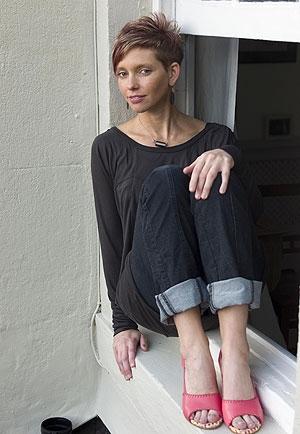The Birmingham Contemporary Music Group does star concerts, which fill (or nearly) the CBSO Centre; and they do old-fashioned New Music concerts, which don’t quite empty it, but leave one wondering who exactly – if anyone - some of the works being played are intended to reach. Their latest offering was of this latter kind. The performers came and went, the audience clapped politely, the electric keyboard went wrong, luckily near the start of Enno Poppe’s Salz, so that we didn’t have to hear too much of it twice. The instrumentalists, brilliant players as one knows, communed with some pretty impenetrable material, “explained” by programme notes rich in imagery and gobbledy-gook. It was like being back in the Seventies: even quite a nostalgic afternoon, in its way.
Well, I have to make one – or to be exact two – big exceptions. The double centrepiece, on either side of the interval, was a pair of brilliant works for largeish ensemble by the waifish-looking but hyper-talented Tansy Davies. Falling Angel is an ebullient response to the painting of that name by Anselm Kiefer; Iris, which I first heard at the Cheltenham Festival six years ago, is an evocation of the winged messenger goddess of the rainbow. Both are works which react to visual images, but in a way that transmutes those images into sound structures; they are the response of an intensely musical mind and an acute ear to ideas conveyed from a different part of the brain, reinterpreted and then transmitted as pure music.
'Its energy is infectious, achieved Stravinsky-fashion by insistent repetition, crisp rhythmic unisons and deep, sudden contrasts of perspective'
Both are vivid and exciting creations. With a pen in her hand, Davies is like an over-stimulated teenager, but one who has learnt – as Cocteau so memorably put it – how far it is permissible to go too far. Her writing for brass is typical. She seems to hurl the music at them, defying them to catch it. But when they do (as of course they do, because they’re the wonderful BCMG), they discover that it is not a rough old stone but a piece of sculpture they can study and enjoy, “black and shiny”, as Davies revealingly describes the sound she wants.
But this music dances as well as shines. Its energy is infectious, achieved Stravinsky-fashion by insistent repetition, crisp rhythmic unisons and deep, sudden contrasts of perspective. Iris forms rainbow bridges (this is the composer’s description) between an antique string chorale-gone-wonky and vibrant episodes for the whole ensemble, linked by a soprano saxophone and signalled by sharp percussion strokes. The sense of space is almost tangible, the pace jolting but exhilarating. I loved both works and look forward to hearing other things by this gifted composer.
Christopher Austin conducted smart performances of the two Davies pieces, with Simon Haram as solo saxophonist in Iris; happily they were being recorded for CD release by NMC. Meanwhile the unfortunate, capable Clement Power was left to mop up the debris. Two inert pieces by Poppe, a 41-year-old Rhinelander, showed only that snappy, Beckettian titles (Holz and Salz) and not-so-snappy polyspectrals, micro-intervals and 125 kinds of chaos (whatever they may be) are no substitute for impulse and clarity. The best things in Salz were the languid woodwind solos, the worst the horrible, musically unmotivated crescendo (the last few kinds of chaos, I suppose) which had many of us stopping our ears at the end.
Rebecca Saunders’s a visible trace, from 2006, displayed an ear for soft textures but no detectable structure or trajectory. And it would have helped to know in advance how long the work was, perhaps more than to be told it was inspired by a gnomic metaphor of Calvino. Music should fight its own corner, not call up shock literary troops.
- Find future concerts at the CBSO Centre
- Find Tansy Davies on Amazon













Add comment